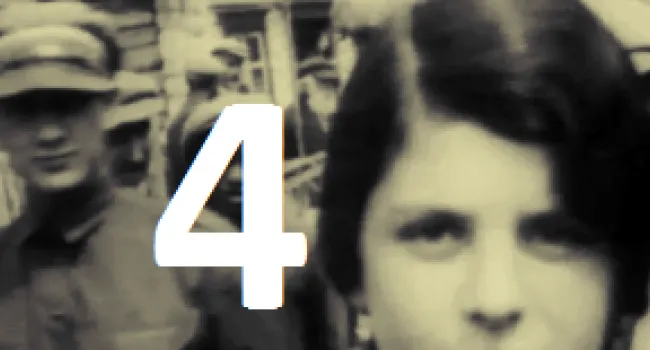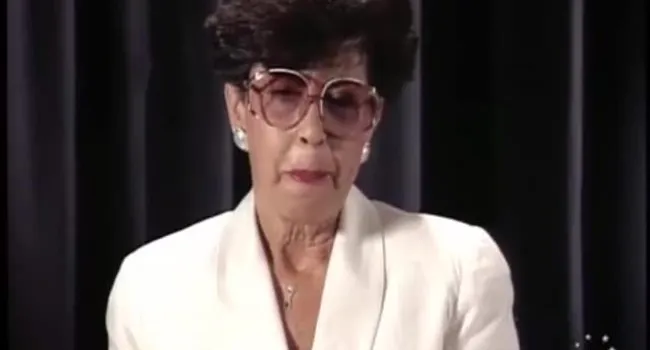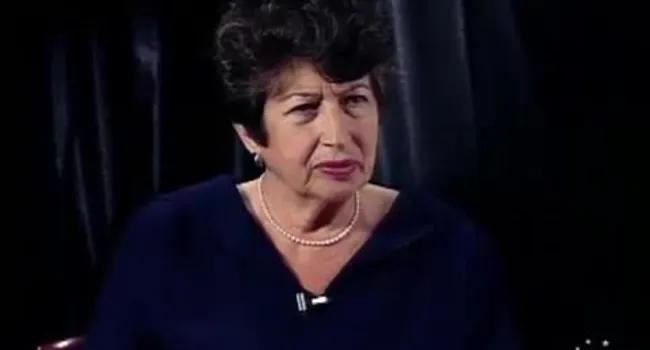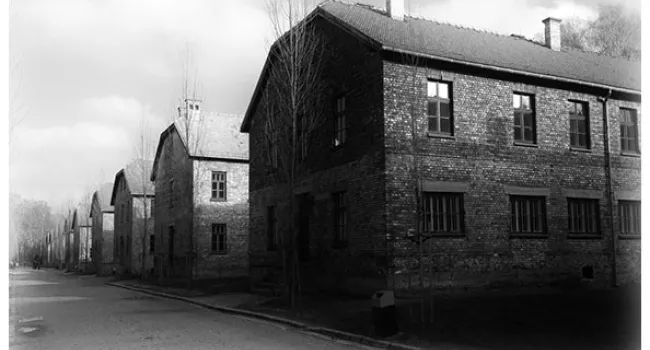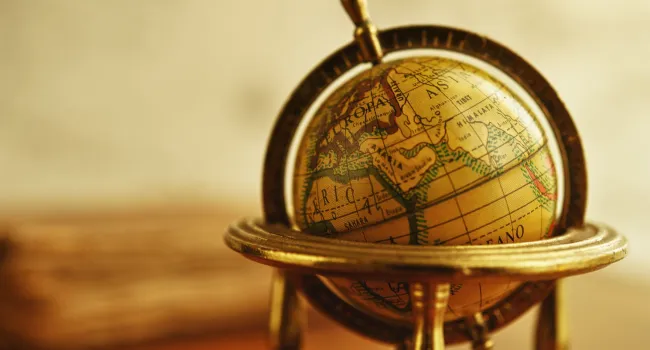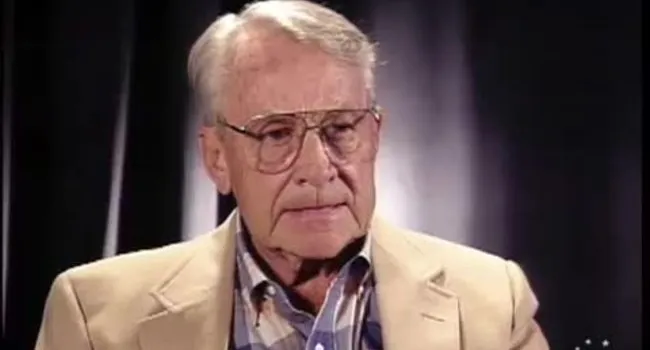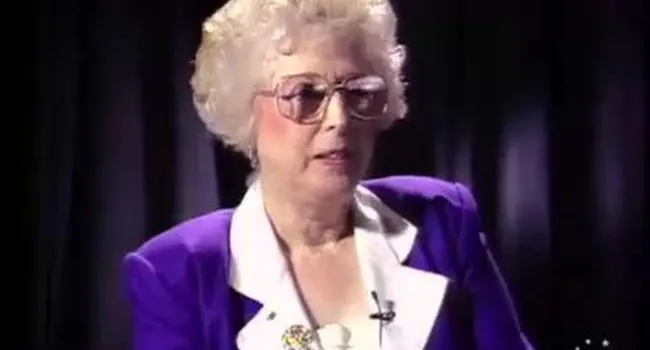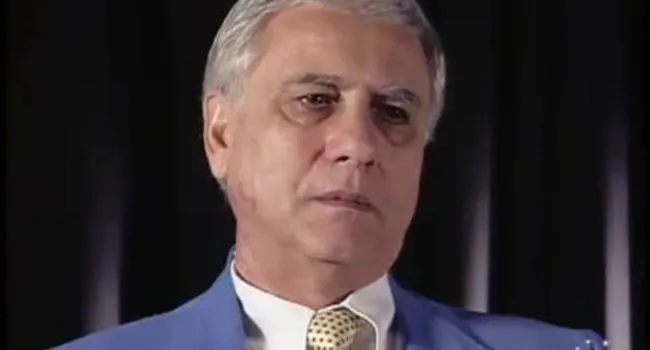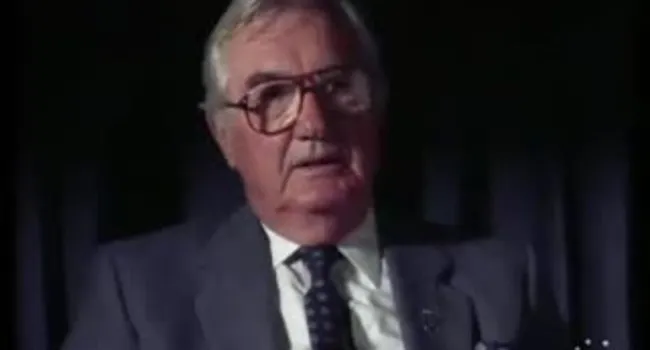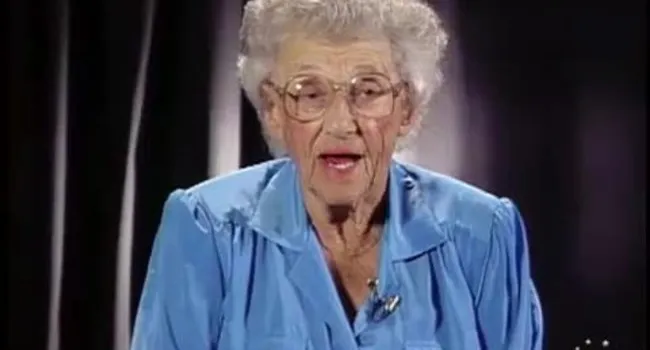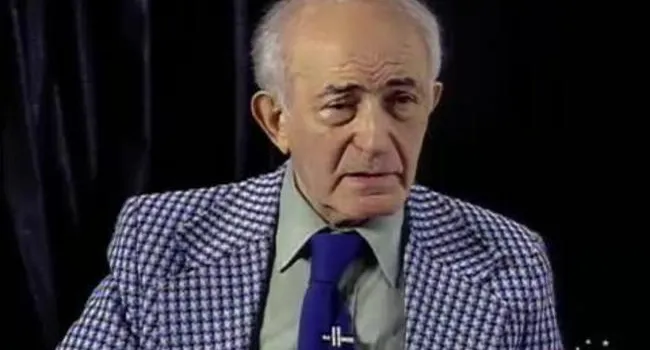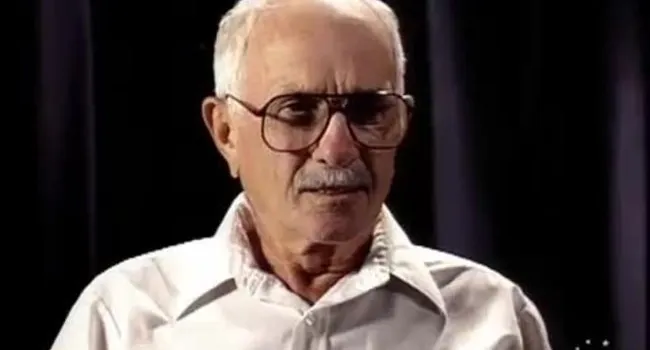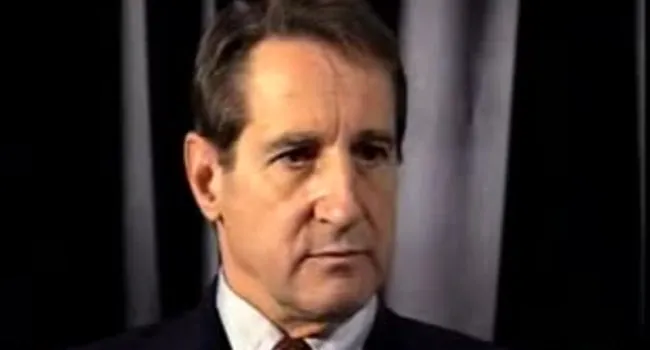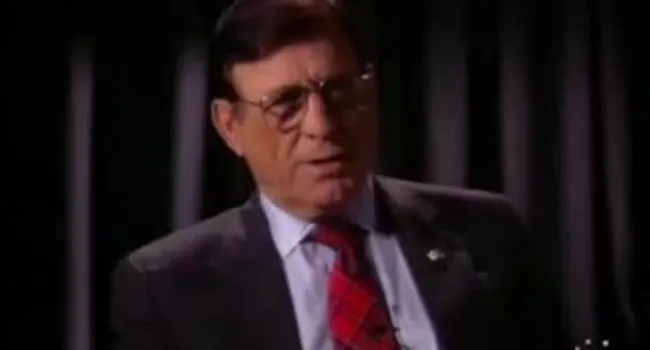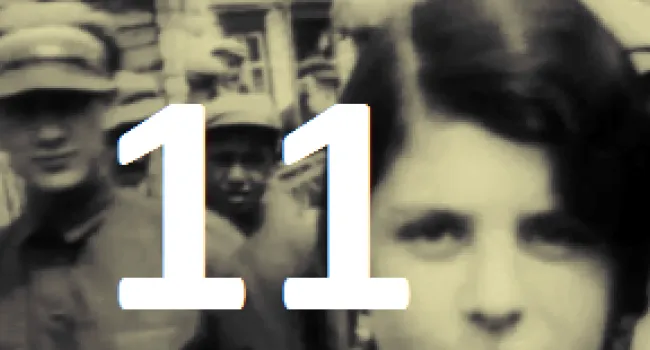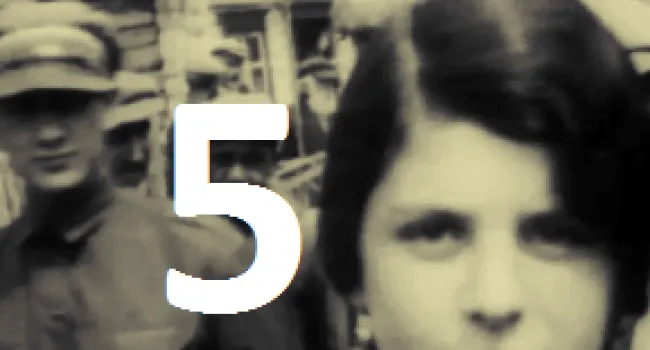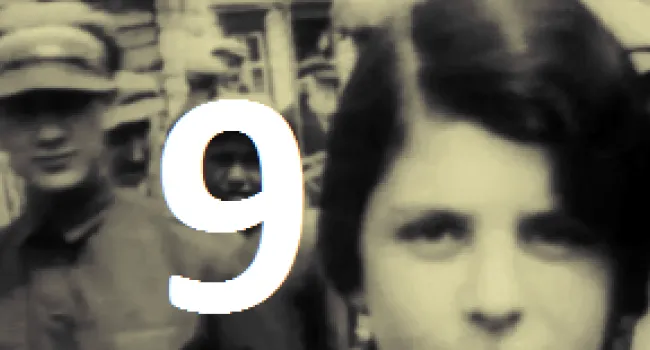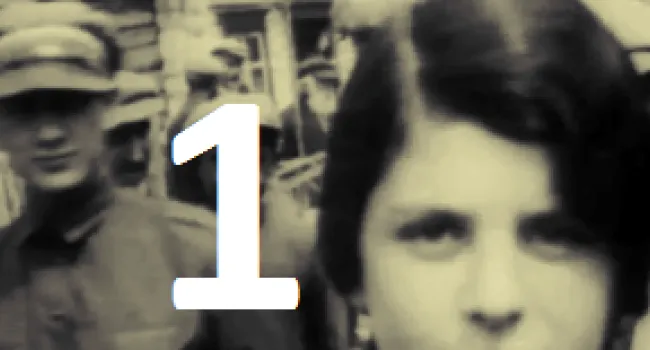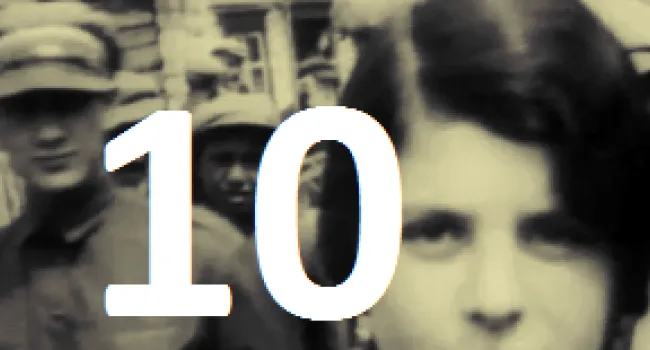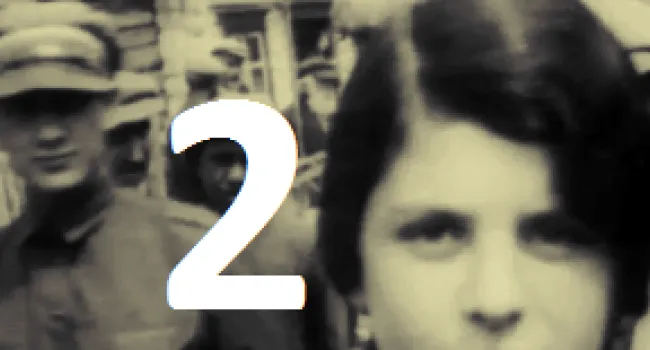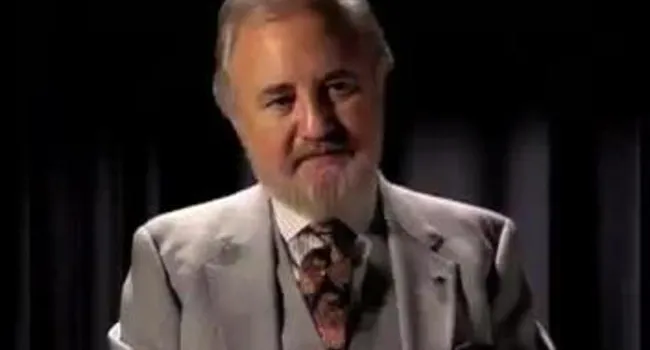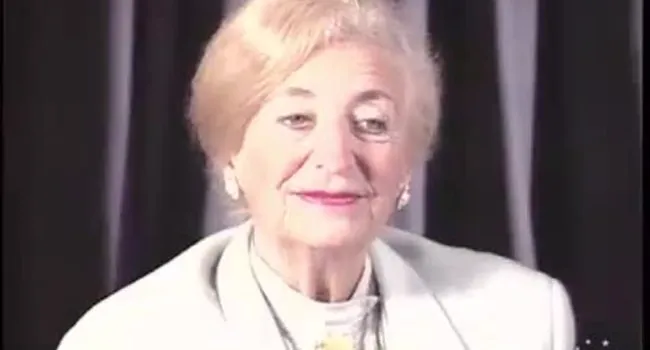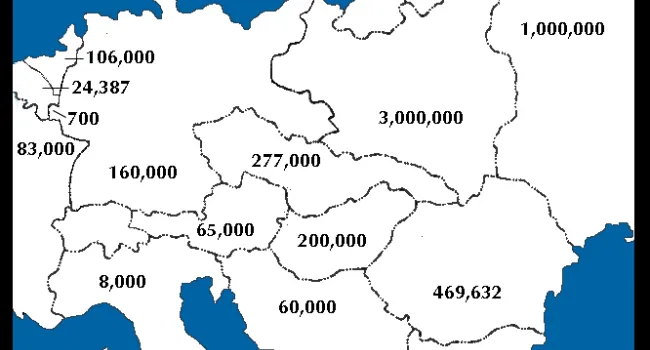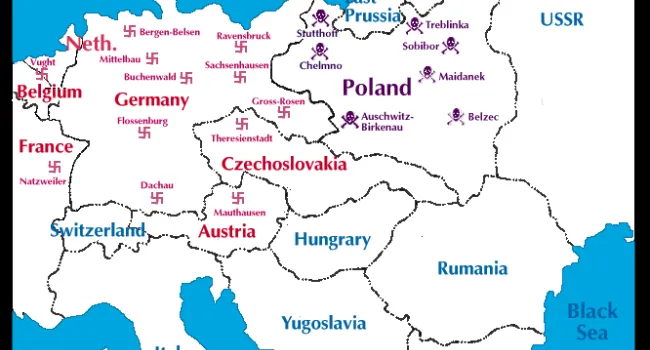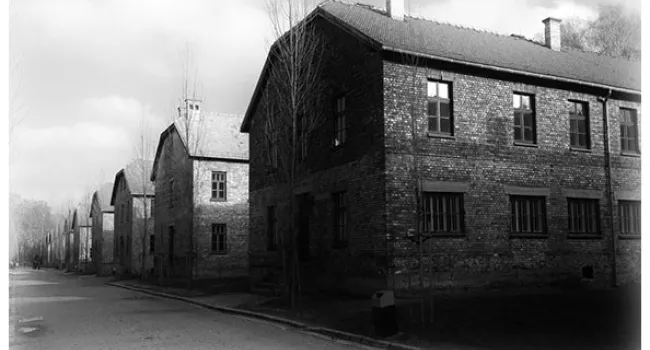Senator Strom Thurmond was with the 1st Army all through the war in Europe. They encountered Buchenwald near Leipzig, and he recalls "never having seen the like of what I saw there." He relays that "most people died from starving, and there must have been several hundred people who had died from starving...and stacked up like cord wood...big pile of dead people. and some of them were not dead; some were barely living, and some of our doctors were able to save some of those people. I never saw such a sight in my life." He continues, "I guess there were mainly about three ways that they got rid of these people....one was mainly starving,..they gave them a bowl of thin pea soup a day and that's all...gradually starve them to death...Another way sometimes...when they're tempted to get over the fence and get away, they'd shoot them...as a second way they were killed. The third way was they had a box there like a telephone booth...there I saw a big old mallet...and these people would walk into it...and a big SS guard would...hit them over the head and kill those people...I couldn't imagine anybody could be so cruel as to treat them like that." He continues, "Of course, in some other concentration camps over there, they gassed them to death." Sen. Thurmond had landed there on D-Day with the 82nd Airborne Division in Normandy, and took that part of the country, and went through Paris and into Belgium...when the Battle of the Bulge occurred. He remembers bombs being dropped on people going back...killing a lot of people in Liege, and that he was lucky not to have been killed." He remembers "ice four to six feet thick, maybe...extremely cold." He recalls what a terrible fight the Battle of the Bulge was. He remembers that "we stopped them and were able to succeed...and our pilots were instructed not to destroy churches." He isn't certain who made the decision not to take Berlin, and recalls that they were disappointed not to have taken Berlin. He states that he cannot imagine "how any person could be so inhuman as to do to those people what I saw.[he continues]...it is just outrageous." Senator Thurmond's recollections are vivid and very detailed.
Standards
- 5.3 Demonstrate an understanding of the economic, political, and social effects of World War II, the Holocaust, and their aftermath (i.e., 1930–1950) on the United States and South Carolina.
- 6.5.CE Explain the impact of nationalism on global conflicts and genocides in the 20th and 21st centuries.
- 7-4 The student will demonstrate an understanding of the causes and effects of world conflicts in the first half of the twentieth century.
- The influence of both world wars and the worldwide Great Depression are still evident. To understand the effects these events had on the modern world, the student will utilize the knowledge and skills set forth in the following indicators:
- 7-4.5 Summarize the causes and course of World War II, including drives for empire, appeasement and isolationism, the invasion of Poland, the Battle of Britain, the invasion of the Soviet Union, the "Final Solution," the Lend-Lease program, Pearl Harbo...
- 7-4.6 Analyze the Holocaust and its impact on European society and Jewish culture, including Nazi policies to eliminate the Jews and other minorities, the Nuremberg trials, the Universal Declaration of Human Rights, the rise of nationalism in Southwest...
- The influence of both world wars and the worldwide Great Depression are still evident. To understand the effects these events had on the modern world, the student will utilize the knowledge and skills set forth in the following indicators:
- 8.5.CO Compare South Carolina and U.S. wartime contributions and demobilization after World War II.
- USHC-7 The student will demonstrate an understanding of the impact of World War II on the United States and the nation’s subsequent role in the world.

